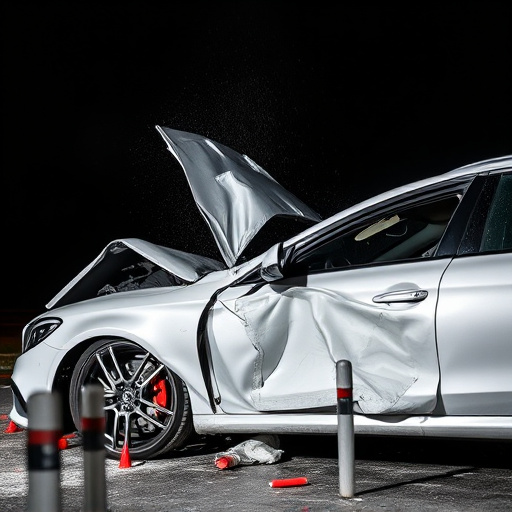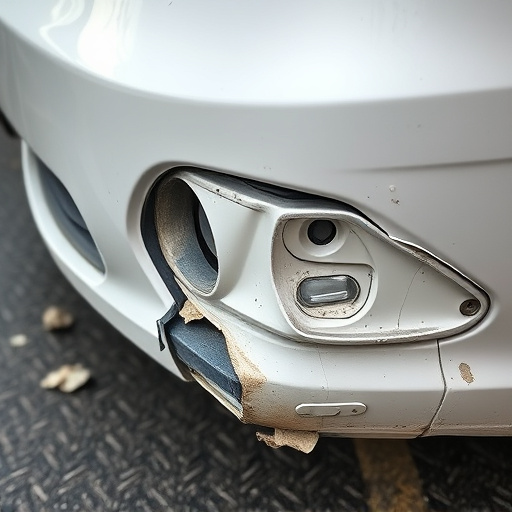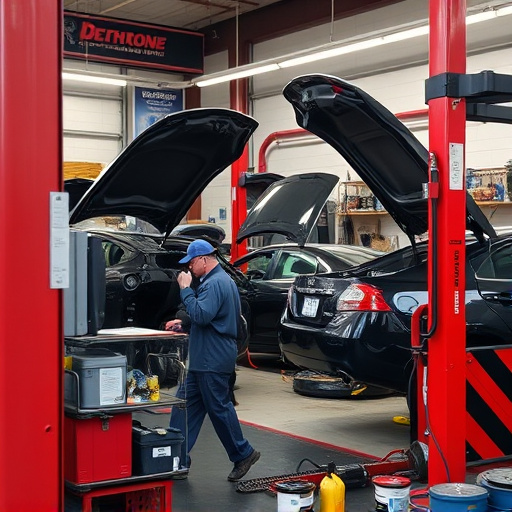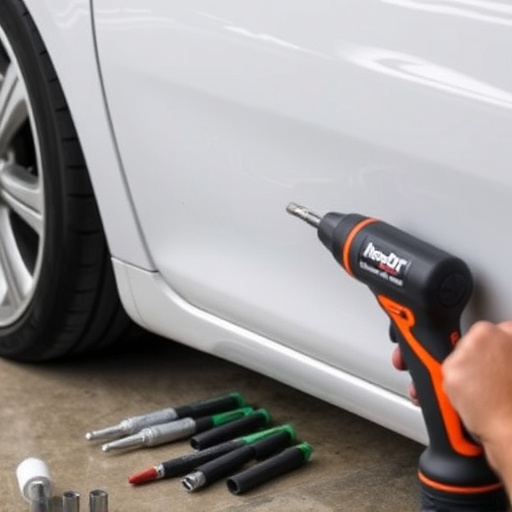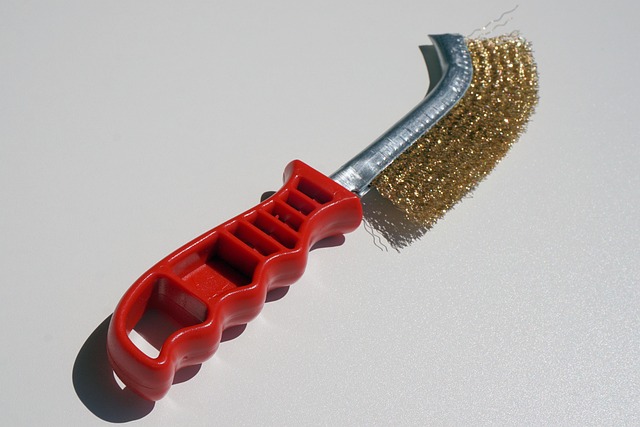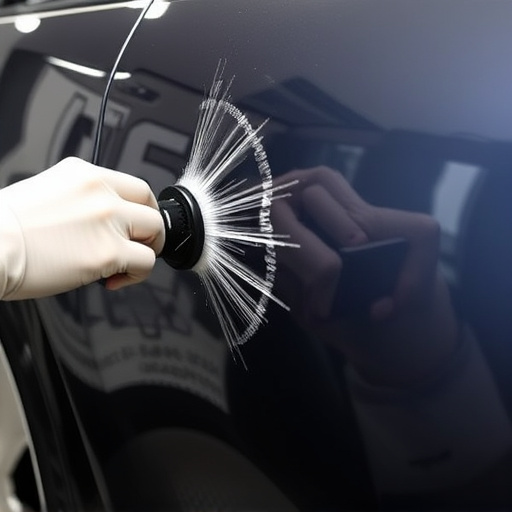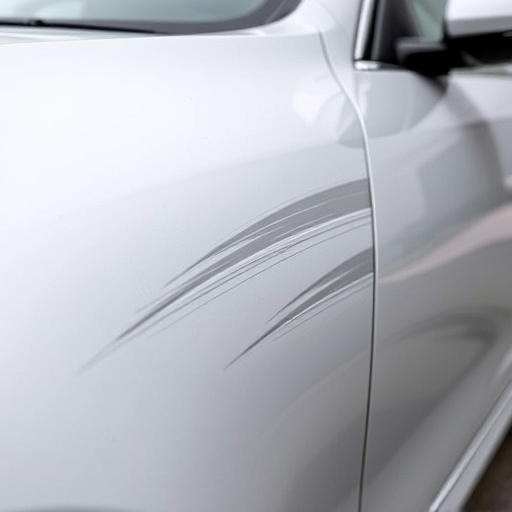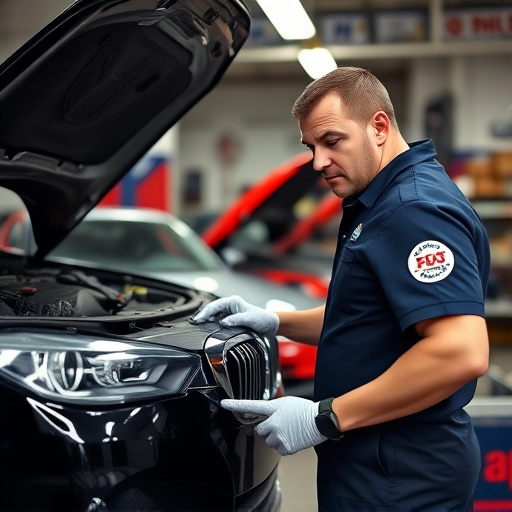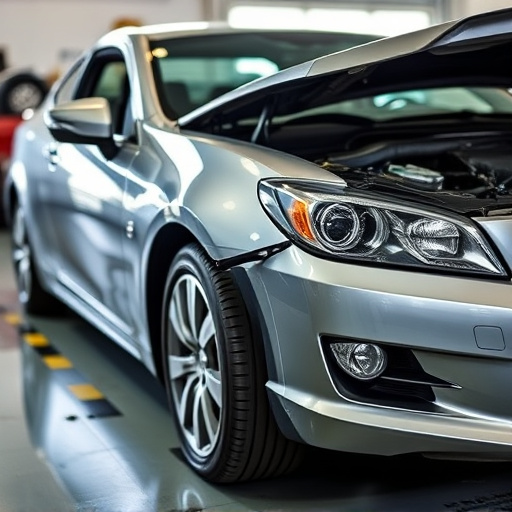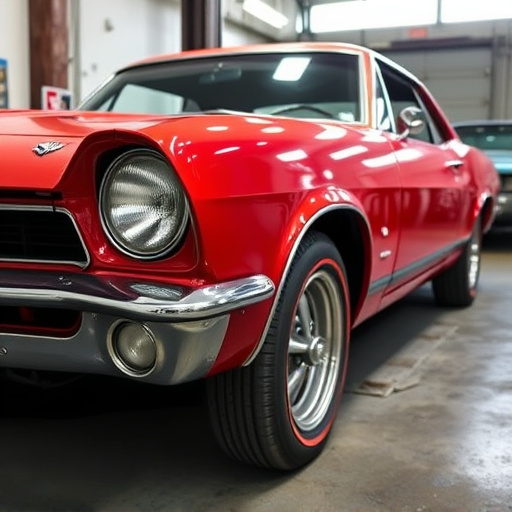Corrosion in electrical systems poses risks leading to malfunctions and failures due to metal interaction with moisture or chemicals. Anti-corrosion materials are vital for long-term protection, acting as barriers against corrosive elements. Advanced coatings, barriers, and treatments extend the lifespan of electrical components, especially critical in demanding industries like automotive repair services. Specialized anti-corrosion materials revolutionize longevity and reliability of electrical systems, with applications ranging from vehicle body repair to dent removal, ensuring structural integrity and safety.
In the realm of electrical systems, corrosion poses a significant threat, leading to costly repairs and system failures. This article explores the critical role of anti-corrosion materials in mitigating these challenges. We delve into the intricate world of corrosion within electrical components and uncover the effectiveness of specialized coatings and compounds. Additionally, it highlights advanced materials that promise enhanced longevity and reliability, revolutionizing the way we protect against this relentless enemy.
- Understanding Corrosion in Electrical Systems
- The Role of Anti-Corrosion Coatings and Compounds
- Advanced Materials for Longevity and Reliability
Understanding Corrosion in Electrical Systems

Corrosion in electrical systems is a common yet detrimental issue that can lead to significant malfunctions and failures. It occurs when metallic components come into contact with each other and react with moisture or certain chemicals, causing a gradual breakdown of the material’s integrity. This process weakens the connections, leading to increased resistance, heat generation, and ultimately, failure of the entire system. Understanding these mechanisms is crucial in developing effective anti-corrosion materials for long-lasting protection.
Anti-corrosion materials play a vital role in safeguarding electrical systems from corrosion damage. These specialized substances are designed to create a protective barrier between metals and corrosive elements, preventing the onset and progression of corrosion. By using advanced coatings, barriers, and treatments, engineers can extend the lifespan of electrical components, ensuring reliable performance for years to come. This is particularly essential in industries such as automotive repair services, where corrosion resistance is critical for maintaining vehicle safety and efficiency.
The Role of Anti-Corrosion Coatings and Compounds
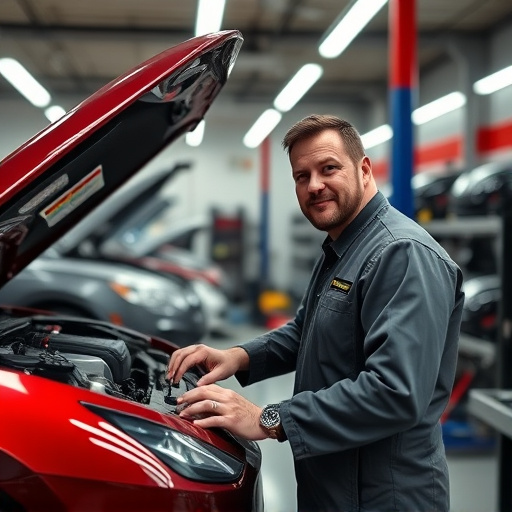
Anti-corrosion coatings and compounds play a pivotal role in safeguarding electrical systems from the insidious effects of corrosion. These specialized materials form a protective barrier, preventing metallic components from deteriorating due to exposure to moisture, chemicals, or other corrosive agents. By acting as a shield, they ensure the longevity and reliable performance of electrical parts, which is particularly crucial in industries where system failures can lead to significant downtime and safety hazards.
In the realm of automotive applications, anti-corrosion coatings are invaluable for vehicle body repair, shielding freshly repaired surfaces from future corrosion outbreaks. Similarly, during dent removal processes, these compounds help restore not just the aesthetic appeal but also the structural integrity of vehicles by minimizing corrosion at the affected areas, effectively extending the lifespan of both new and old cars.
Advanced Materials for Longevity and Reliability
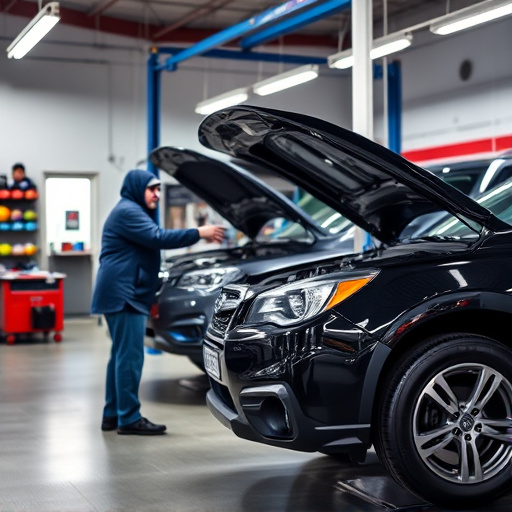
In the pursuit of enhancing electrical system longevity and reliability, the integration of advanced anti-corrosion materials has emerged as a game-changer. These innovative materials play a pivotal role in mitigating the detrimental effects of corrosion, ensuring the smooth operation of critical components for extended periods. By employing cutting-edge technologies, scientists and engineers have developed specialized coatings, alloys, and composites that offer unparalleled protection against corrosion, thus fostering the durability of electrical systems in diverse environments.
The selection of suitable anti-corrosion materials involves a nuanced understanding of specific application requirements. For instance, considering the automotive sector, advanced materials used for car dent removal or tire services can significantly contribute to overall structural integrity and longevity. Similarly, auto glass repair technologies that incorporate corrosion-resistant properties enhance safety and durability, reflecting the multifaceted benefits of these innovative solutions beyond mere aesthetic enhancements.
Anti-corrosion materials play a pivotal role in ensuring the longevity and reliability of electrical systems. By understanding the intricacies of corrosion and employing advanced coatings, compounds, and innovative materials, we can significantly reduce maintenance costs and minimize system failures. The continuous development of anti-corrosion technologies underscores their importance in today’s digital era, making them an indispensable component for fostering efficient and durable electrical infrastructure.
